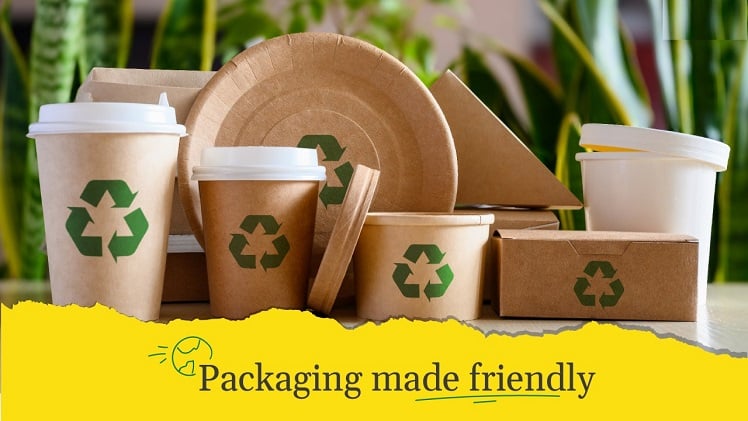Innovative Biodegradable Food Packaging Materials You Should Know About

Are you looking for sustainable solutions for your food packaging needs? With increasing awareness of environmental impact, businesses are seeking eco-friendly alternatives. Traditional plastic wrapping is a major contributor to pollution.
Luckily, biodegradable options reduce waste and offer an environmentally conscious way to package food. For businesses involved in food packaging, exploring these options can provide significant advantages. Let’s explore some innovative biodegradable food packaging materials you should know about.
Detailed Guide
Plant-Based Plastics (PLA)
Plant-based plastics, or polylactic acid (PLA), are a popular biodegradable alternative to traditional plastics. PLA is derived from renewable sources like cornstarch or sugarcane.
Unlike regular plastics, PLA decomposes naturally over time, reducing its environmental footprint. Businesses in the food industry can use PLA for various wrapping needs, such as containers, utensils, and cups.
Starch-Based Packaging
Starch-based materials are another innovative option for eco-friendly wrapping. These materials are biodegradable and compostable, and they are made from renewable sources like potato or corn starch. It breaks down quickly, leaving no harmful residue behind. It is ideal for lightweight items like sandwiches, pastries, and other snacks.
Corrugated Packaging
It is a highly durable and sustainable choice for businesses seeking robust and eco-friendly solutions. Composed of a fluted layer sandwiched between two flat liners, it provides excellent strength and cushioning, making it ideal for protecting goods during transport. Its design allows for easy customisation and printing, which can enhance branding and presentation.
Mushroom Packaging
It is one of the most innovative biodegradable wrapping materials. Made from the root structure of mushrooms, known as mycelium, this option is completely organic and decomposes naturally. It can be moulded into various shapes, making it perfect for custom containers. It is sturdy enough to protect fragile products but breaks down easily in compost environments.
Cardboard Packaging
Cardboard is a widely used and versatile wrapping material that is both eco-friendly and effective. Made from recycled paper fibres, cardboard is biodegradable and recyclable, making it an excellent choice for sustainable wrapping. Its strength and durability make it suitable for a range of applications, from shipping boxes to containers. Cardboard can be easily customised with various coatings and treatments to enhance its functionality, such as water resistance or insulation.
Edible Packaging
Speaking of edible options, it is an exciting innovation in the food wrapping industry. Made from ingredients like rice, potatoes, or gelatin, these materials are designed to be eaten along with the food they contain. It is especially useful for small food items like candies, cookies, or single-serve snacks. It eliminates wrapping waste entirely, as consumers simply consume everything.
Bagasse Packaging
Bagasse is a byproduct of sugarcane processing and is quickly becoming a popular material for biodegradable wrapping. This fibrous material is strong and lightweight, making it ideal for wrapping food items like salads, burgers, or to-go meals. Bagasse is compostable and breaks down much faster than traditional plastics. Its durability makes it suitable for hot and cold foods, offering versatility for food businesses.
Bamboo Packaging
Bamboo is known for being one of the fastest-growing plants in the world, making it an ideal material for sustainable wrapping. Bamboo-based packaging is sturdy, lightweight, and biodegradable. It’s commonly used for making plates, bowls, and utensils. Businesses that serve takeout food or cater events can use this option instead of plastic or styrofoam containers.
Paper-Based Packaging
Traditional paper-based packaging is evolving with new technologies, making it a strong contender in the biodegradable wrapping space. This option is easy to recycle and can also be composted. It’s often treated with natural coatings to make it grease-proof or water-resistant. For businesses, it works well for bakery items, sandwiches, and other fast-food products.
As businesses seek sustainable alternatives, biodegradable food packaging materials provide various innovative options. From plant-based plastics to edible wrapping, numerous eco-friendly solutions are available. Embracing this form of wrapping is a smart choice for the environment and an excellent way for businesses to appeal to eco-conscious consumers.




